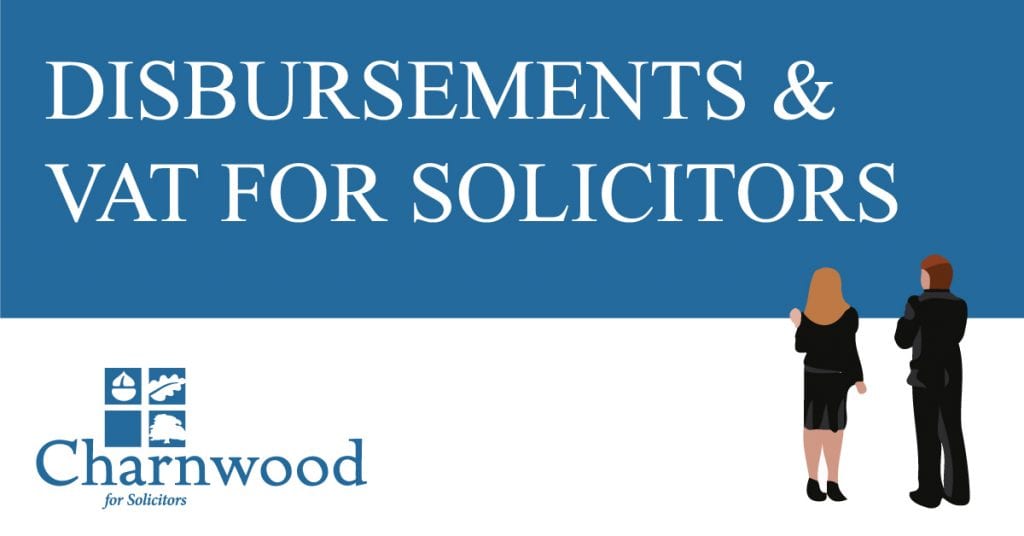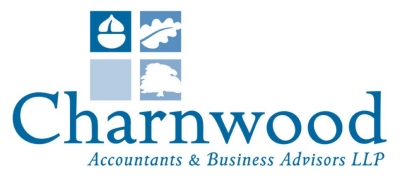
Solicitors refer to many things as disbursements, but when it comes to VAT the definition is very specific and much narrower. From now on any references to disbursements are for the VAT definition only.
Broadly speaking…
A disbursement for VAT purposes is an expense that is really the client’s direct expense, it has just been arranged for and paid for by the solicitor on behalf of the client as a matter of convenience or normal practice. An expense that isn’t a disbursement is one that the solicitor may incur whilst doing the work for the client, and pass on to the client, but is really the solicitor’s expense, paid out to aid the solicitor’s work whilst working for the client. A simplified way of looking at it (though complexities mean this won’t always be accurate) is – can the client have organised this and paid for it themselves? Eg:
- Land registry fees – yes – disbursement
- CHAPS fees on payments from the solicitor’s bank account – no – not a disbursement
The full list of criteria for a disbursement is given at the end.
VAT treatment of disbursements
There are two options:
Option one
The total invoice price, including VAT if any, is passed on to the client. No VAT is charged by the solicitor to the client on this price. The solicitor cannot reclaim any input VAT, neither can the client as the VAT invoice is not addressed to them. This option is fine to use if there is no VAT on the original disbursement invoice, or if the client is not entitled to reclaim VAT. If there is VAT on the original invoice, and the client is a VAT registered business, a better option is:
Option two
The solicitor reclaims the input VAT on the original invoice, then must charge VAT on the cost when invoicing the client.
Examples
Disbursements – statutory charges such as court fees, estate duty, land charge and land registry fees, probate fees, stamp duty, professional services of a third party such as estate agents, surveyors
Not disbursements – telegraphic transfer fees, CHAPS, travel, accommodation, postage, telephone
Specific agreements with HMRC
- Counsel’s fees – by concession the advice can be treated as if it were made direct to the client, so is treated as a disbursement for VAT purposes. The counsel’s VAT invoice can be amended by adding the name and address of the client and inserting ‘per’ before the solicitor’s own name and address. This is then recognised as a valid VAT invoice in the hands of the client and VAT can be reclaimed.
- Postal searches – this may be treated as a disbursement where the solicitor passes the document obtained by the search to the client direct or to the bank or building society involved in the client’s property purchase
- Personal search – if a solicitor pays a fee for a personal search to get information to advise a client, then the solicitor has received that information and not the client. This is not a disbursement
- Coal mining search – typically the coal authority stamps the invoice directly onto the search document. In agreement with the Law society, this is not a disbursement
- Fee for office copy entry on the Land Register – by agreement with the Law Society, if the vendor’s solicitor recharges this to their client, it is a disbursement. However, if the purchaser’s solicitor recharges this to their client it is not a disbursement.
Criteria for a disbursement
For an item to be treated as a disbursement for VAT purposes it must satisfy all of the following conditions:
- The solicitor acted as the agent of their client when they paid the third party
- The client actually received and used the goods or services provided by the third party
- The client was responsible for paying the third party
- The client authorised the solicitor to make the payment on their behalf
- The client knew the goods or services would be provided by a third party
- The outlay must be separately itemised on the client invoice
- The exact amount is invoiced to the client
- The goods or services the solicitor has paid for are clearly additional to the supplies the solicitor makes to the client themselves
- In the case of a report or search result, the client should receive the final report, although the solicitor can retain a copy
- The supplier (ie the third party) should be aware that the service is for the client and not the solicitor
For more blogs like this and to download your free benchmarking report to compare your firm’s financial performance to the national average, please visit our website designed specifically for solicitors: www.charnwoodforsolicitors.co.
